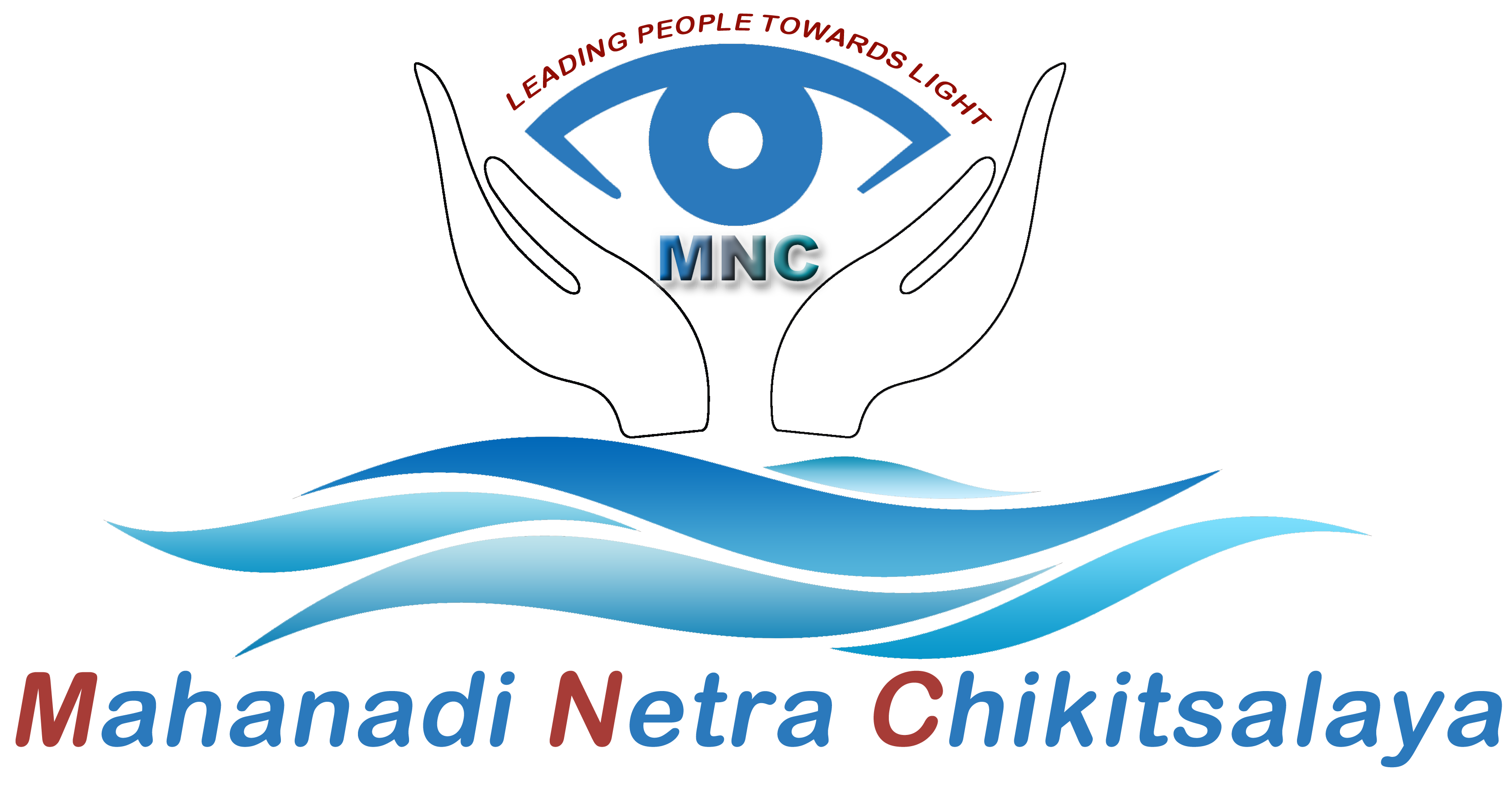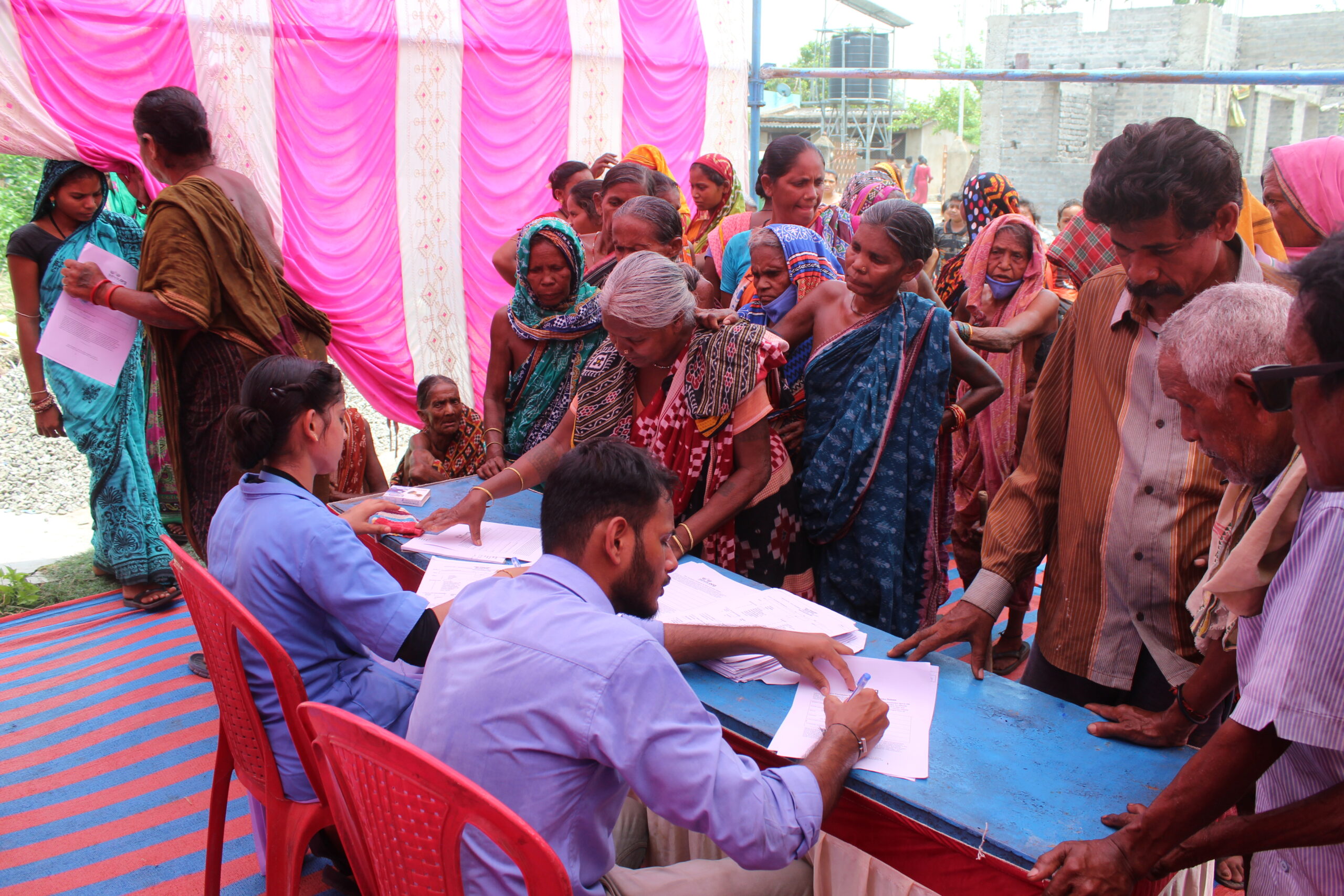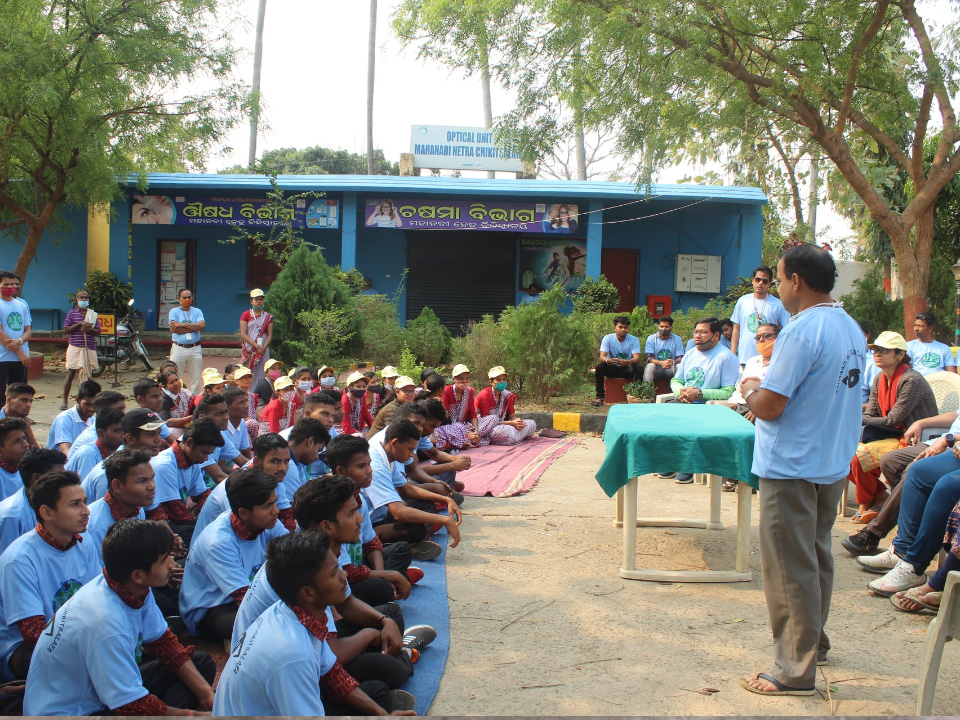


The Base Hospital at Mahanadi Netra Chikitsalaya (MNC) operates as a comprehensive secondary-level eye care facility at Pandapalli, Subarnapur in Odisha, offering a full spectrum of curative, preventive, and corrective services to individuals with eye problems. The hospital is organized into two primary service departments:
Outpatient Department (OPD): This department serves as the first point of contact for patients, providing consultations, diagnostic evaluations, and non-surgical treatments. The OPD is equipped with advanced diagnostic tools, enabling the early detection and management of various eye conditions. It also includes an optical department that dispenses prescription spectacles, ensuring that patients have access to the corrective lenses they need.


Surgery Department: The Surgery Department is the core of MNC’s curative services, comprising an Operation Theatre and an In-patient Ward. The Operation Theatre is outfitted with state-of-the-art surgical equipment, allowing the hospital to perform a wide range of eye surgeries, from routine procedures like cataract removal to more specialized interventions such as DCT, DCR, and squint surgeries. The In-patient Ward provides post-operative care and monitoring, ensuring patients receive the highest standard of care during their recovery.
The Base Hospital includes a dedicated medicine dispensing department, where patients can obtain the necessary medications prescribed by their ophthalmologists. With its advanced diagnostic and surgical equipment, coupled with a committed team of highly skilled ophthalmologists and support staff, MNC’s Base Hospital is well-positioned to deliver comprehensive and high-quality eye care services to the community.

Community outreach diagnostic camps are initiatives undertaken by MNC to provide essential services to underserved and hard-to-reach populations. These services are designed to bridge the gap between healthcare facilities and communities, especially those in remote or marginalized areas. Outreach activities involve going directly into communities to deliver services, educate the population, and create awareness about various health issues. In the context of eye care, these services focus on providing primary eye-care, screening for conditions like cataracts, refractive errors, glaucoma, and diabetic retinopathy (DR), and referring patients to specialized facilities for further treatment.
MNC undertakes community outreach for several key reasons:
Impact on Underserved, Hard-to-Reach, Poor People
MNC’s community outreach services have had a profound impact on underserved and hard-to-reach populations, particularly the poor:
The Vision Centre initiative currently operates 14 centers and one city hub across various districts as part of its outreach strategy. These centers aim to provide primary eye care services to the local population, raise awareness, and educate the community on overall health and eye health promotion. Additionally, they work to establish a population-based eye care surveillance system and boost the uptake of eye care services, particularly among rural communities. Each center is staffed with a Vision Technician responsible for delivering primary eye care and dispensing spectacles, along with support staff focused on community education and eye health screenings.


Activities such as eye health education in schools, teachers training, screening in schools, spectacle provision and referrals are undertaken under this strategy. Teachers are identified and trained so that they can conduct the first level screening in their schools and identify students with eye problems. After the second level screening the students identified with refractive errors are provided spectacles. Those who identified with major problems and needing higher level interventions are referred to the MNC.
This strategy has been designed to increase the awareness of the communities, specifically the rural illiterate communities, women and children to improve the eye health-seeking behaviour and self/community referrals to outreach camps and also the base hospital. Electronic audio-visual shows, street plays, women group discussions, school health educations, display of banners, posters and the distributions of leaf-lets are the various modes used by the project to disseminate the relevant messages. In addition, MNC undertakes sensitisation activities for the leaders, volunteers, grass-root service providers and organisations. The project has adopted QUEST methodology and developed contextual IEC materials to be used in different health education activities.


MNC actively engages in collaborative efforts with local Non-Governmental Organizations (NGOs), Community-Based Organizations (CBOs), and various stakeholders to enhance outreach activities and health education initiatives. By partnering with these entities, we are able to extend our reach and impact within the communities we serve. Additionally, our advocacy initiatives focus on working closely with the district health system and the education department. These efforts aim to streamline case referrals and bolster the overall support system, ensuring that patients receive timely and effective care.
We prioritize the continuous development of our staff to ensure the highest quality of service delivery. To achieve this, our team members regularly participate in need-based training programs designed to enhance their skills and performance. In our commitment to fostering local talent, we have implemented a strategy that involves recruiting local youth as trainees and providing them with comprehensive, hands-on training within our facilities. To maintain excellence in our services, we conduct regular clinical reviews and patient satisfaction surveys, allowing us to monitor and improve the quality of care we provide.

Accessible and Sustainable Healthcare
Our hospital is dedicated to making healthcare accessible to all, offering free treatment to over 60% of our patients. For those who are able to contribute, a user fee is applied. To further our mission of sustainability, we are empanelled with various Third-Party Administrator (TPA) agencies and are part of the Biju Swastya Kalyan Yojana (BSKY), a state-level insurance scheme for individuals below the poverty line. This partnership enables us to provide cost-free, cashless services to beneficiaries, thereby contributing to our efforts to generate funds and ensure the longevity of our services.
Fundraising Initiatives
To support our ongoing operations and enhance the sustainability of our services, we have introduced several philanthropic initiatives:
© 2022 Mahanadi Netra Chikitsalaya – LEPRA Society. All Rights Reserved.